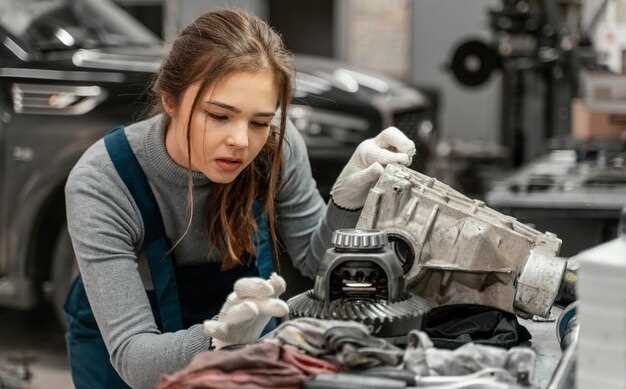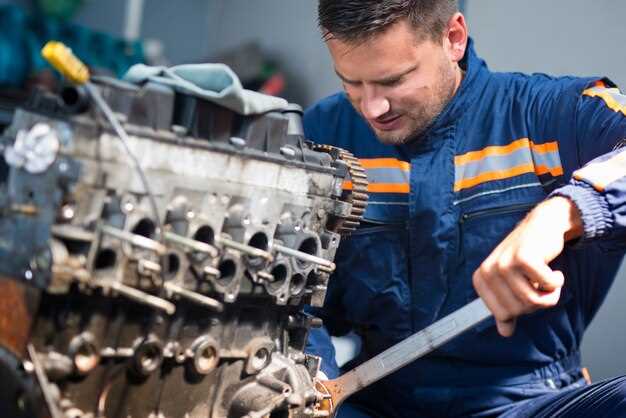
Diesel engines are known for their durability and efficiency, making them a popular choice in various industries ranging from transportation to agriculture. However, like any machine, they require regular maintenance to ensure optimal performance and longevity. Proper diesel engine maintenance not only extends the life of the engine but also improves fuel efficiency and reduces emissions.
Understanding the specific needs of a diesel engine is crucial for anyone who relies on this powerful technology. Regular checks of key components, such as the fuel system, air intake, and cooling system, play a significant role in maintaining engine health. This article will provide essential tips and practical steps for keeping your diesel engine in peak condition, ensuring that it runs smoothly and efficiently over the years.
Incorporating a routine maintenance schedule allows you to identify potential issues before they become significant problems. By following expert recommendations and best practices, operators can avoid costly repairs and downtime. Whether you are a seasoned professional or a newcomer in the world of diesel engines, understanding the fundamentals of maintenance is vital for success.
Regular Oil Changes: Understanding Intervals and Types

Regular oil changes are crucial for maintaining the health and performance of diesel engines. Oil serves as a lubricant, reducing friction between engine components and ensuring smooth operation. Over time, oil degrades, losing its effectiveness due to contaminants and the breakdown of additives.
Intervals for oil changes can vary significantly based on several factors, including engine type, usage, and manufacturer recommendations. Generally, many diesel engines require oil changes every 5,000 to 7,500 miles. However, heavy-duty applications or extreme driving conditions, such as towing or frequent short trips, may necessitate more frequent changes, sometimes as often as every 3,000 miles. Always consult the owner’s manual for specific guidelines tailored to the engine model.
Different types of oil are available for diesel engines, including conventional, synthetic, and synthetic blend. Conventional oil, derived from crude oil, is often less expensive but may require more frequent changes due to quicker breakdown. Synthetic oil, formulated in a laboratory, offers superior protection at higher temperatures, better fluidity in cold conditions, and extended change intervals. Synthetic blends combine conventional and synthetic oils, providing a balance between cost and performance. Ultimately, the choice of oil type should align with the engine’s requirements and the operational conditions.
In summary, understanding the appropriate intervals and selecting the right type of oil are essential for the longevity and efficiency of diesel engines. Regularly scheduled oil changes not only protect engine components but also enhance fuel efficiency and reduce the risk of costly repairs.
Fuel System Care: Cleaning and Replacing Filters
The fuel system in a diesel engine is crucial for achieving optimal performance and efficiency. A well-maintained fuel system ensures that the engine receives clean fuel, which is essential for combustion. Regular cleaning and replacement of fuel filters play a significant role in this maintenance process.
Over time, fuel filters accumulate contaminants such as dirt, rust, and water. These impurities can clog filters, leading to reduced fuel flow and engine performance. It is vital to check the manufacturer’s recommendations for the frequency of filter replacements, which typically range from every 10,000 to 20,000 miles, depending on driving conditions and fuel quality.
Cleaning fuel filters can prolong their lifespan but is not always sufficient. Begin by carefully removing the filter from the system, ensuring that you have prepared a clean workspace to avoid introducing additional contaminants. Use a suitable cleaning solution designed for diesel filters to remove any deposits. After cleaning, ensure the filter is completely dry before reinstallation.
However, cleaning is not always a guaranteed solution. Inspect the filter for physical damage, such as cracks or holes. If any signs of wear are evident, it is better to replace the filter entirely. Always use OEM (Original Equipment Manufacturer) filters when replacing, as they are specifically designed for your engine type.
When installing a new filter, follow the manufacturer’s guidelines for proper torque and sealing. Ensuring that there are no leaks is paramount, as even minor leaks can lead to system inefficiencies. After replacement, monitor engine performance for any unusual behavior, indicating potential issues within the fuel system.
In addition to filters, regular checks of the entire fuel system, including lines and injectors, are recommended. Keeping the fuel system clean and well-maintained not only enhances engine performance but can also significantly extend the longevity of the vehicle.
Cooling System Inspection: Checking Hoses and Radiator Condition

Regular inspection of the cooling system is crucial for the longevity and performance of a diesel engine. The cooling system maintains optimal operating temperatures, preventing overheating and ensuring efficient operation. Two key components to inspect are the hoses and radiator.
Start with the hoses. Examine all coolant hoses for signs of wear, such as cracks, bulges, or soft spots. A damaged hose can lead to coolant leaks, which compromise the engine’s cooling efficiency. Ensure that the hose clamps are securely tightened, as loose clamps can cause leakage. If hoses are aged or have been in service for more than four to five years, consider replacing them proactively to prevent failures.
Next, inspect the radiator for any signs of damage or corrosion. Look for leaks or buildup of debris that could obstruct airflow. Clean the radiator fins carefully using compressed air or a soft brush to remove any dirt or debris accumulated on the surface. Ensure that the radiator cap is in good condition and seals properly, as a faulty cap can lead to pressure loss in the cooling system.
Also, check for proper coolant level and condition. Use the manufacturer’s specifications to determine the correct type of coolant and ensure it is mixed properly. If the coolant appears rusty or contaminated, perform a complete coolant flush and fill it with fresh coolant to maintain optimal performance.
Periodic inspection of the cooling system, along with timely maintenance, will help avoid overheating issues and extend the life of your diesel engine. Always consult the owner’s manual for specific guidelines regarding your engine’s cooling system maintenance. Regular attention to these components ensures reliability and operational efficiency.



